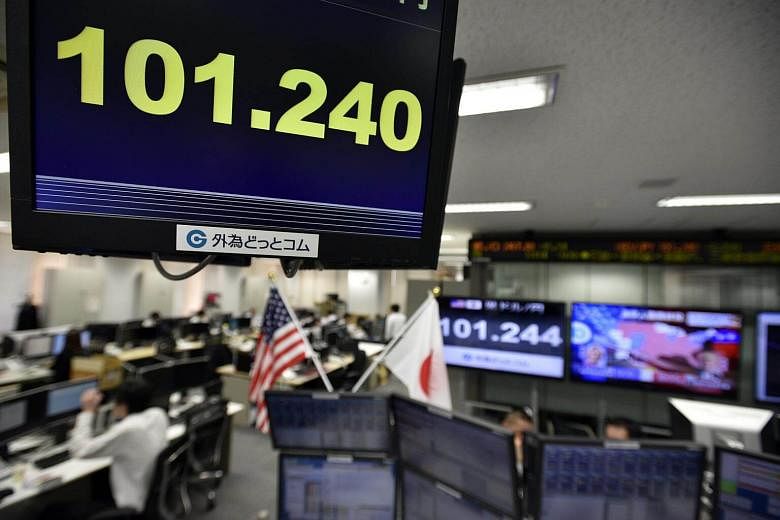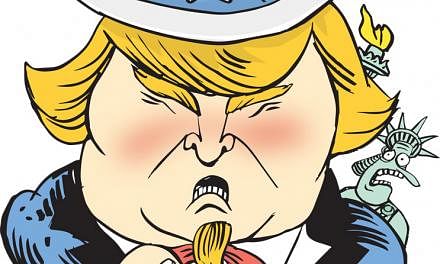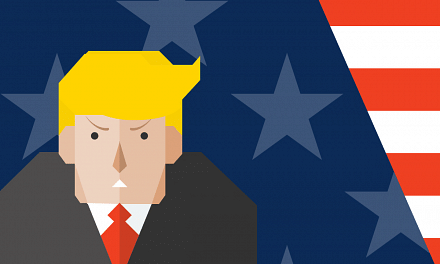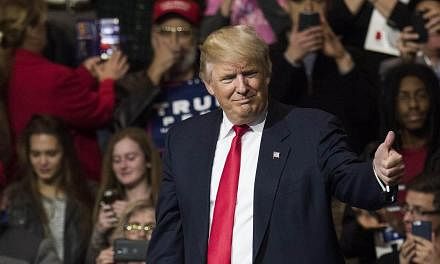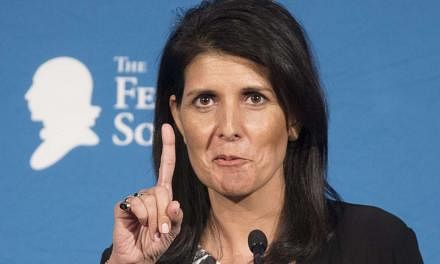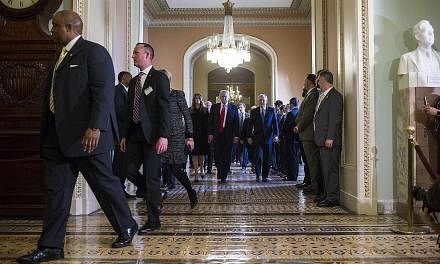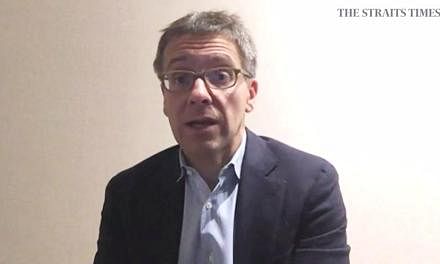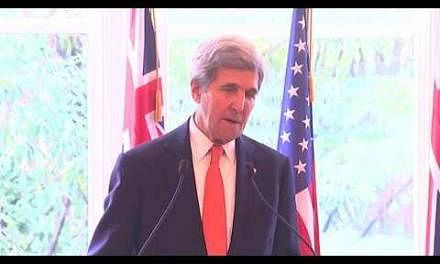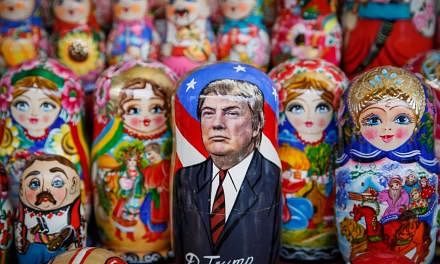Gold and global currency markets were rocked by Mr Donald Trump's victory, with investors dumping risky assets and rushing into safe haven ones.
The precious metal was the obvious winner yesterday, surging as much as 4.8 per cent to US$1,337 an ounce before sliding back to below US$1,300 by the evening.
Some analysts tip gold hitting US$1,500 an ounce, as investors take cover while awaiting clearer direction from the new United States government.
Mr James Cheo, investment strategist from the Bank of Singapore, warned that a Trump presidency means more uncertainty given his unpredictable policies.
That uncertainty helped boost another Asian safe haven - the Japanese yen, which shot up 1.5 per cent against the Singdollar yesterday.

There were losers as well, understandable given Mr Trump's strident anti-trade messages throughout the campaign.
Just as sterling bore the brunt of the Brexit sell-off, the Mexican peso was the worst performer among currencies worldwide yesterday.
The currency suffered the biggest one-day decline against the greenback since 2008, on fears that American trade policies will become more protectionist. The peso was down more than 12 per cent against the US dollar at one point before regaining some ground.
The Singdollar weakened slightly to S$1.3946 against the greenback, from S$1.3901 on Tuesday.
Oil was hit as well, with crude down as much as 4.3 per cent to US$43.07 a barrel in New York as investors shunned riskier assets.
Foreign exchange markets look to be the most vulnerable to volatility in the months ahead.
Analysts said that if Mr Trump pursues his anti-trade policies, US trade-dependent currencies such as the Asian ones and the Mexican peso will likely fall against the greenback.
But others see the US dollar weakening amid Mr Trump's plans for what Mr Richard Buxton, head of UK equities at Old Mutual Global Investors, described as "increased infrastructure spending, with little regard to the effect on the already burgeoning US deficit".
HSBC global research economist Kevin Logan agreed: "Fiscal expansion and new legislation to encourage (or force) repatriation of overseas profits would likely be positive for the US dollar.
"However, a weaker US dollar may be part of Trump's efforts to spur manufacturing. A tougher immigration policy could curtail potential growth, while a squeeze on real incomes from higher tariffs could tip the economy towards recession.
"This, combined with a US isolationist stance, would likely encourage foreigners to sell US assets."
Such uncertainty could make the Singdollar a safe haven asset, like the yen and the Swiss franc, he said.
But World First chief economist Jeremy Cook warned: "There is no point in gambling on currency in this environment as the multitude of variables makes it little more than guesswork."
Grace Leong
